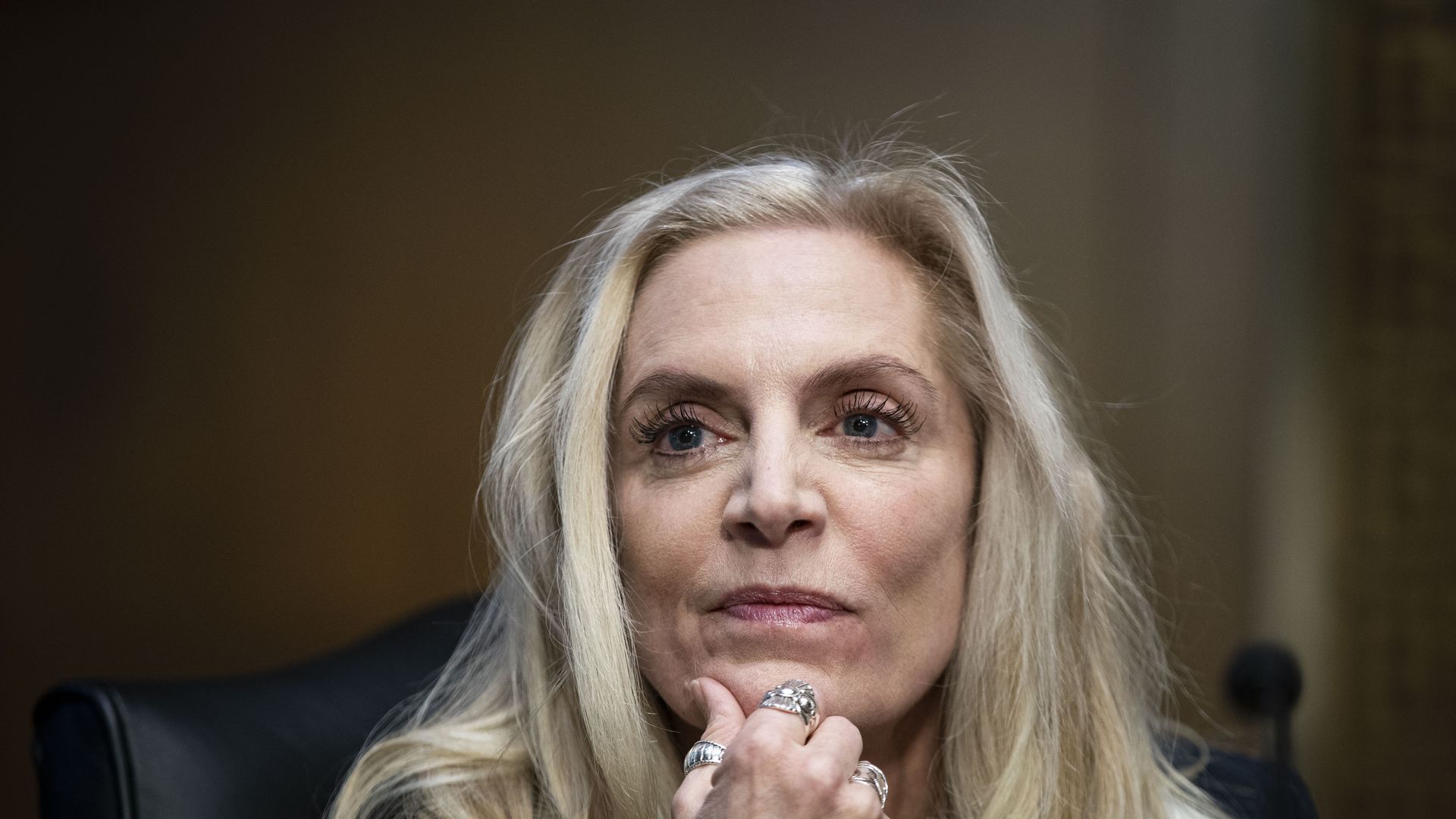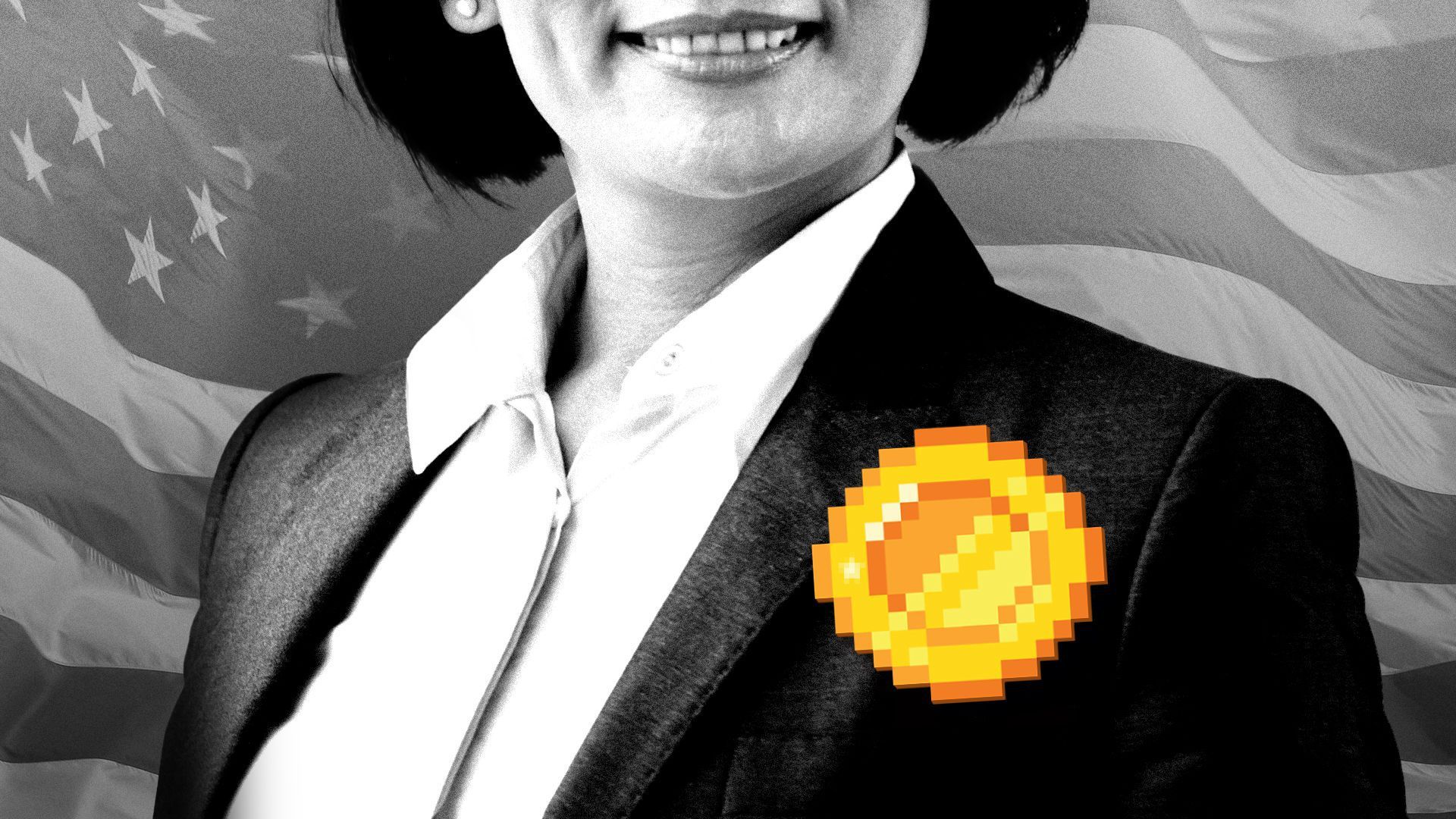| | | | | | | Presented By Let Everyone Invest | | | | Axios Markets | | By Emily Peck and Matt Phillips · May 06, 2022 | | 😬 Stonks — amiright? Matt's got the latest on the wild market volatility we're seeing lately. More could be on the way, with the April jobs report due at 8:30am ET. But first, we need to talk about the global market for fertilizer. Seriously. Let's do this. Today's newsletter, edited by Kate Marino, is 1,157 words, 4.5 minutes. | | | | | | 1 big thing: The fertilizer crisis |  The rolling crises of the past few years rendered visible so many vital commodities that plenty of us never gave much thought — nickel, silicon chips, lumber, Emily writes. - The latest entrant into this camp: Fertilizer.
Why it matters: Skyrocketing fertilizer costs — like those made from nitrogen, phosphorus and potassium (NPK) — are driving up food prices and, worse, threatening food security around the globe. State of play: Prices for NPK were up 125% in January from a year before, and rose another 17% from the beginning of the year to March, according to data compiled by the International Food Policy Research Institute (IFPRI). - The looming European ban on Russian natural gas (a critical component in manufacturing some fertilizers) could worsen the situation.
- "We're in a dire situation right now," said Svein Tore Holsether, the CEO of fertilizer maker Yara International, at a seminar hosted by IFPRI this week.
- If farmers use less fertilizer, they can't produce as many crops — and that raises the specter of "malnutrition, political unrest and, ultimately, the otherwise avoidable loss of human life," Bloomberg reported.
The big picture: Prices for these heavily traded raw materials were already rising in 2021, because of a myriad of factors: Hurricane Ida in the U.S., an upsurge in demand after the pandemic, supply chain issues, and rising natural gas prices that predated the war in Ukraine. Then, two things made that worse: - China: The country, which supplies 24% of the world's phosphates, 13% of nitrogen and 2% potash, halted fertilizer exports this past summer.
- War: Russia's invasion of Ukraine disrupted trading in the Black sea, putting the global food supply in peril generally (for instance, the wheat disruption). Russia and its ally Belarus also produce a lot of fertilizer. In 2020, Russia provided 14% of urea (a nitrogen fertilizer), and, with Belarus, 41% of potash, a potassium fertilizer.
Of note: Fertilizer is a heavily traded product, meaning most countries — even the ones making lots of food — import their supply. - Three-quarters of countries in the world depend on imported fertilizer for 50% or more of their fertilizer use, IFPR notes.
- Some countries, including Mongolia, Nicaragua and Ecuador are at the mercy of Russian and Chinese policies with the majority of their fertilizer supply cut off.
The bottom line: In richer countries, we'll continue to see higher food prices, and in more vulnerable countries things could grow desperate. - "Many fields are not being planted," Theo de Jager, the president of the World Farmers' Organisation, said yesterday. "I"m not so sure it's possible to avoid a food crisis."
- "Farmers need peace," de Jager said.
|     | | | | | | 2. Catch up quick | | 🇨🇳 U.S. regulators are in China to discuss how Chinese firms, with U.S. listed stocks, are audited. (Reuters) ✈️ Boeing to relocate headquarters to Arlington, Va. (Axios) 💰 Peloton seeks minority investment of 15% to 20%. (WSJ) |     | | | | | | 3. Charted: Volatility is the new normal |  Data: FactSet; Chart: Baidi Wang/Axios Thursday was another wild one for stocks, in a display of extreme volatility that's starting to look like a trend, Matt writes. Why it matters: The treacherous swings in stock prices reflect the new — and deeply uncertain — phase of the post-pandemic era. - Check out the chart above, which shows just how frequent outsized daily swings — in either direction — have become over the last three months.
What's new: The S&P 500 dove 3.6% yesterday, more than erasing its 3% gain on Wednesday in a giant two-day whipsaw for investors. - Yesterday's pain was broadly spread. All 11 S&P sectors (subindexes that cover broad industry groups) fell.
- Market giants like Amazon and Apple — down 7.6% and 5.6% — weren't spared.
State of play: Investors are getting hammered by three related cross-currents — inflation, monetary tightening and a China slowdown. The bottom line: There are very few guides for markets to rely on when getting hit with a combination of shocks as big as we're seeing. With the S&P down 13% so far this year, investors are settling on one clear answer to a lot of their questions: sell. |     | | | | | | A message from Let Everyone Invest | | Tell regulators: no testing before investing | | |  | | | | Investors should not have to be subject to pre-approval requirements, such as taking a test before they can invest in public securities. Get involved: If you agree, make your voice heard and tell regulators you oppose limitations on your investments. Submit a public comment. | | | | | | 4. Fair lending law gets another look |  | | | Fed governor Lael Brainard. Photo: Bloomberg via Getty Images | | | | The FDIC, OCC and Federal Reserve jointly released a proposal yesterday that would overhaul a decades-old law meant to address systemic inequities in banking and prevent the practice of redlining, Emily writes. Why it matters: The 1977 Community Reinvestment Act encourages banks to lend to lower-income borrowers in the physical area situated around their branches; that's less relevant in an online banking era. - Redlining and race discrimination in lending have created and reinforced massive racial wealth gaps in the U.S.
What they're saying: "The CRA is one of our most important tools to improve financial inclusion in communities across America, so it is critical to get reform right," Fed governor Lael Brainard, who's been working on this update for years, said in a statement. Details: The update would bring more transparency and teeth to the law. - Depending on their size, banks would have to provide more detailed data on lending.
What's happening: The evidence is mixed as to whether or not the law has actually been effective. Lending discrimination certainly hasn't gone away. - More than half of Black applicants who applied to Wells Fargo for a refinance in 2020 were turned down, compared to 72% of white homeowners, a recent Bloomberg investigation found.
- "When 98 percent of US financial institutions receive passing scores in their CRA evaluations, yet the racial wealth and homeownership gaps are the same, if not wider, than they were 50 years ago, it is not enough for regulators to just tell financial institutions to 'do better,'" Mike Calhoun, president of the Center for Responsible Lending, said in a statement.
Of note: The law doesn't apply to the financial firms that currently comprise 75.5% of the mortgage market, the Wall Street Journal points out. What's next: The agencies are accepting comments on the proposal through August and a finalized rule is expected in less than a year. |     | | |  | | | | If you like this newsletter, your friends may, too! Refer your friends and get free Axios swag when they sign up. | | | | | | | | 5. Crypto becomes a political player |  | | | Illustration: Sarah Grillo/Axios | | | | Regulation of digital assets is a hot and contentious topic in Washington right now, with billions potentially on the line, Axios' Lachlan Markay, Matt Phillips and Alexi McCammond write. - As lawmakers eye new oversight powers, industry engagement in D.C. is skyrocketing.
The big picture: Cryptocurrency is showing its growing power in national politics, with its own billionaires tilting the balance in key midterm contests — and operatives in both major parties rushing to implement the underlying technologies to boost their candidates and campaigns. - Political groups backed by wealthy crypto investors have already scored some key wins in the 2022 midterm primaries. And at this early stage in the campaign, donations from the industry already have exceeded 2020 totals by more than two-thirds, according to OpenSecrets data shared with Axios.
By the numbers: More than $22.5 million in contributions from donors in the crypto space went to federal political campaigns and committees from 2021 through March of this year. Read the full story. |     | | | | | | A message from Let Everyone Invest | | Keep access to public securities available to all investors | | |  | | | | Regulators are considering limiting access to many of today's most popular funds to select groups of people only. Get involved: If you value the freedom to access a broad range of investment products for all, submit an official comment today. | | |  | It's called Smart Brevity®. Over 200 orgs use it — in a tool called Axios HQ — to drive productivity with clearer workplace communications. | | | | | | Axios thanks our partners for supporting our newsletters. If you're interested in advertising, learn more here.
Sponsorship has no influence on editorial content. Axios, 3100 Clarendon Blvd, Suite 1300, Arlington VA 22201 | | | You received this email because you signed up for newsletters from Axios.
Change your preferences or unsubscribe here. | | | Was this email forwarded to you?
Sign up now to get Axios in your inbox. | | | | Follow Axios on social media:    | | | | | |











No comments:
Post a Comment